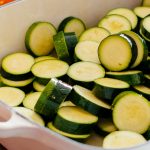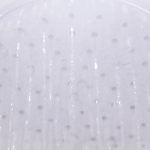Underwater you can’t hear much—you can’t hear Mom and Dad arguing after you’re supposed to be asleep, you can’t hear your mother crying in the kitchen over a pot of soup, you can’t hear your father banging away at some new invention in his workshop. That’s why I wanted to be a marine biologist when I grew up. I’d swim with the dolphins and dive deep underwater where the coolest fish live—Indian Glassfish, so clear you can see through their tiny bodies, Peacock Gudgeon with brilliant orange markings, Bristlenose Plecostomus, the small but mighty catfish. I wanted to study something beautiful and strange—something you can’t find here in Ohio.
Dad quit his job, and Mom never had one, and that’s okay Dad says, because “God will provide.” So we’re waiting for God to provide. And Mom says “Yes, but sometimes you have to help God along.”
We’re still waiting. In the meantime, I studied to be a marine biologist. I read two books on exotic fish, one on dolphins, and one about what marine biologists do. I set up an experiment just like a marine biologist, using my two hermit crabs—Sally and Spot. One night, after my lights were out, I put popcorn on a paper plate in one corner of my room, then their water sponge in the other corner and released them in the middle. Then I went to bed. I wanted to see what they would do if they had to choose between the two things they needed to survive.
But in the morning, they were gone. I told Mom and Dad that the hermit crabs must have escaped their cage during the night, but I don’t think they believed me.
“Have you checked underneath your bed, Lucy?” Mom asked.
“Just pray, honey,” Dad said. “Pray and God will help you to find them.”
So I prayed while checking underneath the bed. But, no hermit crabs.
A few days later, while Dad was mowing the grass in the July heat, he found Spot underneath the window air conditioner, in a puddle, where the cold water leaks from the corner. Spot was missing one claw, his beady eyes looked droopy, but he was alive.
“See, God answered your prayer,” Dad said.
“But where’s Sally?” I asked.
Dad shrugged.
The experiments proved too risky, so I decided I wanted to be an ocean photographer—to capture images of orange coral and baby seahorses hatching from their father’s pouch.
For practice, I took photographs of Spot walking sideways with his remaining legs, then of Dad while he screwed more screws into his latest microscope-turned-robot thingamajig, later of Mom while she folded her clothes and put them into her suitcase.
I stopped taking photos when Mom closed the suitcase and said, “That’s it. I’m done!” She sounded angry, but her face reminded me of Spot’s when we’d found him outside. “Lucy, do you want to come with me to Nan’s house or stay here with your father?”
“Honey,” Dad said to me, “I know you’ll make the right choice.”
I looked down at my camera’s screen—in all the photographs, no one was together, no one was smiling, no one was laughing.
Dolphins laugh; they swim together, protect each other, hunt for food together. They watch fish, listen to the sounds of waves, make friends with the sea turtles.
“I have made a decision,” I lifted my head, hands on my hips. “When I grow up, I want to be a dolphin.”
…
Biography: Bethany Jarmul is a writer, editor, and poet. Her work has appeared in more than 50 literary magazines and been nominated for Best of the Net and Best Spiritual Literature. She earned first place in Women On Writing‘s Q2 2022 essay contest. Bethany enjoys chai lattes, nature walks, and memoirs. She lives near Pittsburgh with her family. Connect with her at bethanyjarmul.com or on Twitter: @BethanyJarmul.
…
Image: unsplash.com





